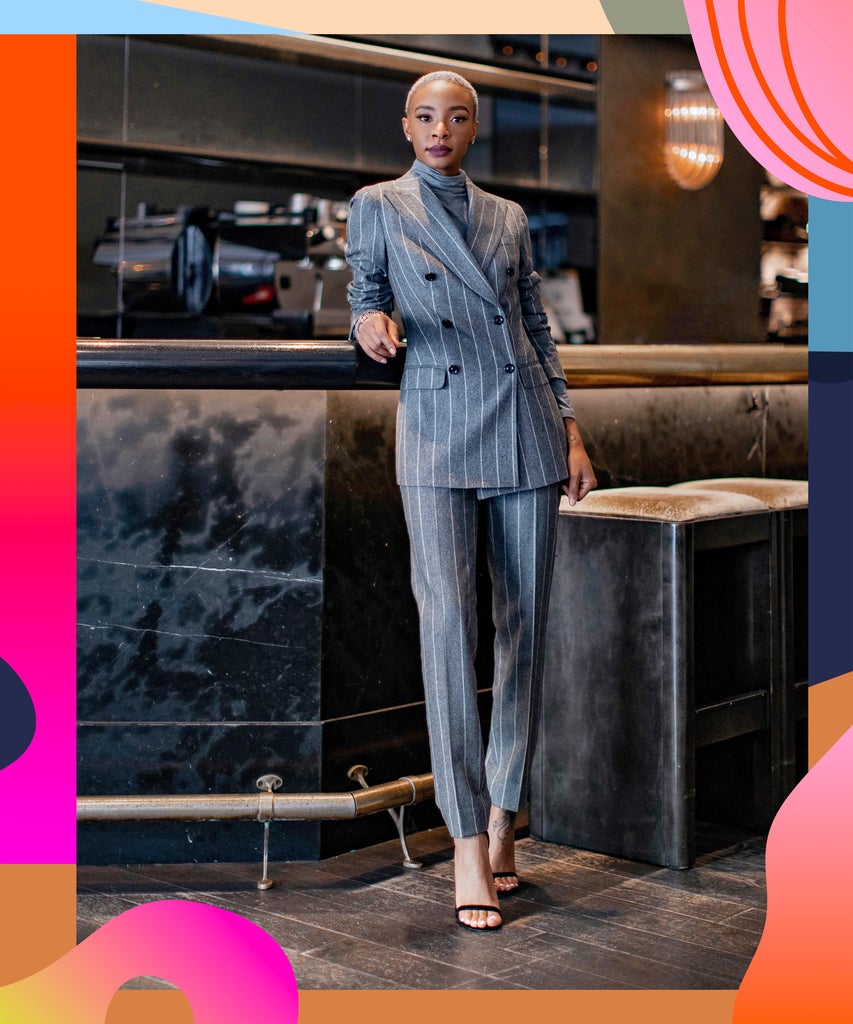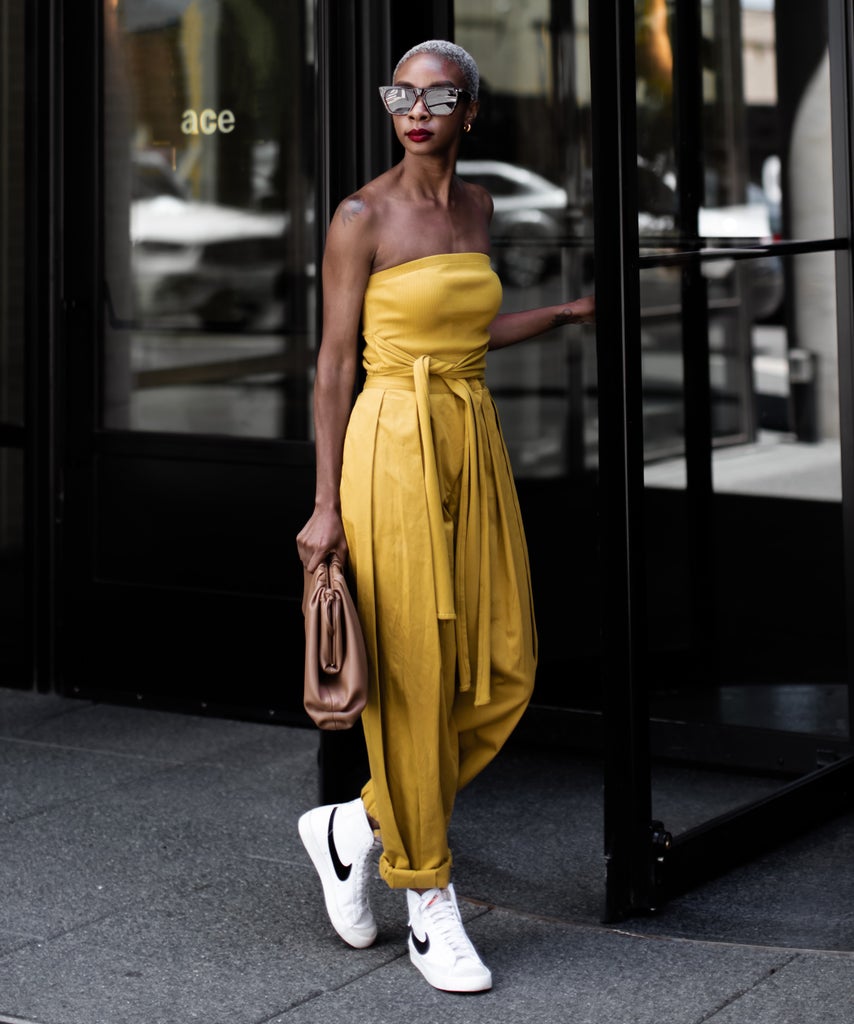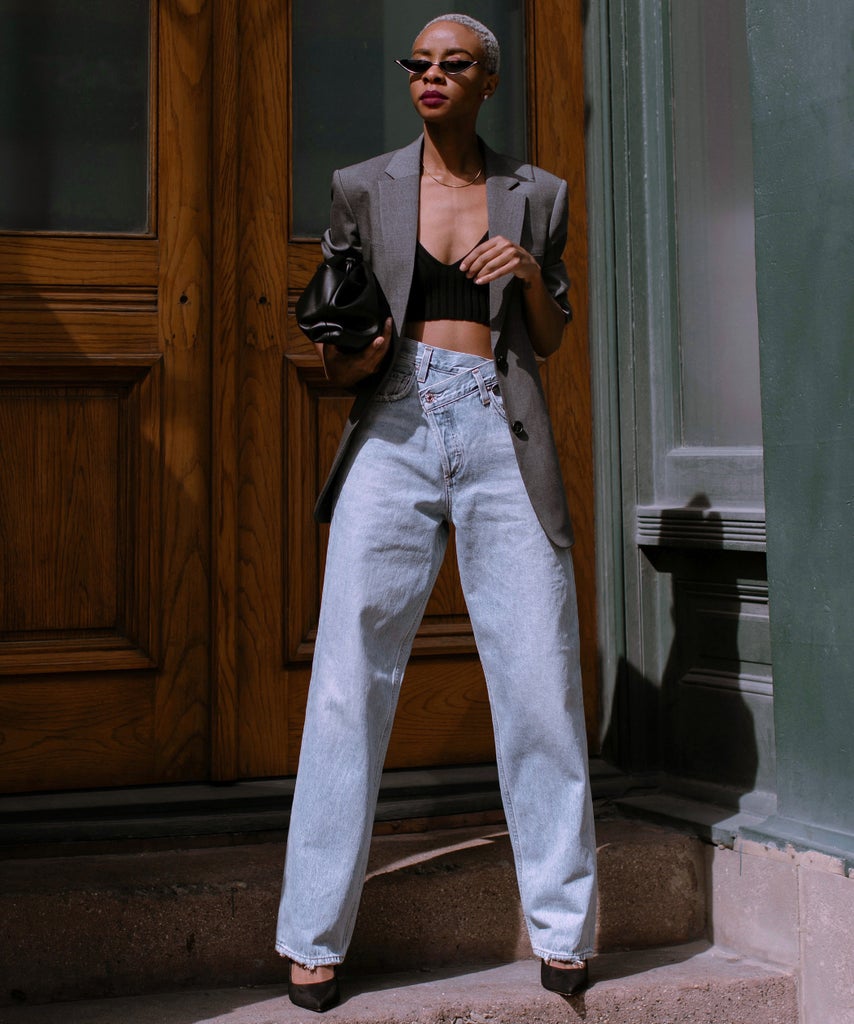
Before content creation became a legitimate career field, Black women have been influencing the world as we know it. Our fashion, style, and make-up looks turn into global trends that we end up not being credited for. Now, in the creative space, Black influencers are making sure that brands know their worth and add tax. R29Unbothered spoke to Chicago based lifestyle content creator, Blake Gifford, aka Signed, Blake, about her journey as a creator, and how her law degree has helped her navigate her brand partnerships, the community (more like family) she’s built with her audience, and her popular Amazon drop collections.
A little over a decade ago, as Gifford was graduating from college and her friends were starting their new jobs or going off to law school, she began to blog about her journey and what she envisioned for the next stage in her life. “I didn’t have a ton of money, so I would shop at thrift stores a lot and share [on my blog] how I would tweak [an outfit] and make it my own,” Gifford says.
When Instagram launched, Blake would share photos of her outfits on the platform and her blog organically started growing. While continuing to blog her life, Blake also went to law school and had her sights on becoming a defence attorney but soon realised after interning with the Bronx Defenders that the work was very emotional and personal. “I didn’t think I could do it and maintain a healthy headspace without reopening my own wounds [from] growing up in foster care,” Gifford says. Gifford had been in foster care from age eight through eighteen. She decided to pivot into intellectual property law since it would be useful to her as an influencer. Before she had a management team, Blake would look over all of her contracts and negotiate her own deals, which made her feel more confident in pushing back on terms.
“It’s important for brands to partner with Black creatives but also pay us what we’re worth, because like it or not, we drive the culture. End of discussion.”
Signed, Blake
As a Black creator, Gifford has had to advocate for herself, considering brands have a tendency to pay Black influencers less than their white counterparts. The pay disparity is so pervasive that, last year, Adesuwa Ajayi launched the Instagram page Influencer Pay Gap, exposing brands and how little they pay Black creators compared to white creators. Gifford says, “It’s important for brands to partner with Black creatives but also pay us what we’re worth, because like it or not, we drive the culture. End of discussion. We drive the culture, so if you want to be on top of what’s happening at the moment, you need Black content creators,” she says.
Gifford has been able to set trends and move culture because the community she’s built over the past decade is invested in her as a creator. Alongside fashion, Blake also shares her cleaning and organisation habits under the hashtag #NeatFreaky, as well as her apartment renovations, and her adventures with her lovely dog Bash. “Ten plus years ago, no one was making money doing this at all and I didn’t get into it with the goal of making money,” Gifford shares. “I got into it with the goal of finding a community…I feel very indebted to my community because they found me during a time when I was really struggling with my own self-esteem,” she says. “I always say people don’t buy products, they buy people and the fact that I’m able to sell products is because people are invested in me as a person.”

This, she says, is what sets Black influencers apart. “Community is within our culture of being Black, we are raised where everything is a village and so I think Black people innately bring that mindset to what it means to be a content creator in a way that is really unique and special,” she says. Gifford’s connection with her community was particularly noticeable with her fashion collaboration with Amazon. The Drop is Amazon’s fashion line that works specifically with content creators on a seven-piece capsule collection. Noticing a gap in the market, Gifford literally slid in Amazon’s DMs.
“I noticed that all the content creators were white, thin, and mostly New York City-based,” says Gifford. “So I slid into their DMs and simply told them I should be next and they responded, ‘Email us, we’d love to talk about it,’ and within 24 hours of my initial email I had a contract on my desk.”
As Gifford designed her luxurious yet affordable capsule collection, she included her audience in the process by posting on Instagram stories and creating polls on what her audience wanted to see. She implemented the feedback she received in the final styles, patterns, and fabric options she picked.

Gifford also advocated for the change she wanted to see, specifically with diversity and size inclusion. “I told [Amazon], there are not enough plus-size women and Black creators and that they need to open those doors.” Her first drop was pushed back slightly due to the pandemic and it worked out in her favour because she was able to make sure the collection had an inclusive size range (XXS – 3X). “I also acknowledge my body type privilege and being on one extreme end of the size chart has let me know in a really small way what it feels like to shop and not find anything that fits, so I can only imagine what that feels like for plus-size women,” Gifford says.
It’s her commitment to wanting everyone to feel beautiful in her clothes that drove her decision to also incorporate affordable luxury and high-quality fabrics in her collection.
“To me, luxury exists at every level, it’s not about the price of things but how I feel,” Gifford says. “Black luxury specifically [is] about finding and radiating joy in a world that wants us to be anything but happy. I try to infuse that into every aspect of my life.”
Like what you see? How about some more R29 goodness, right here?